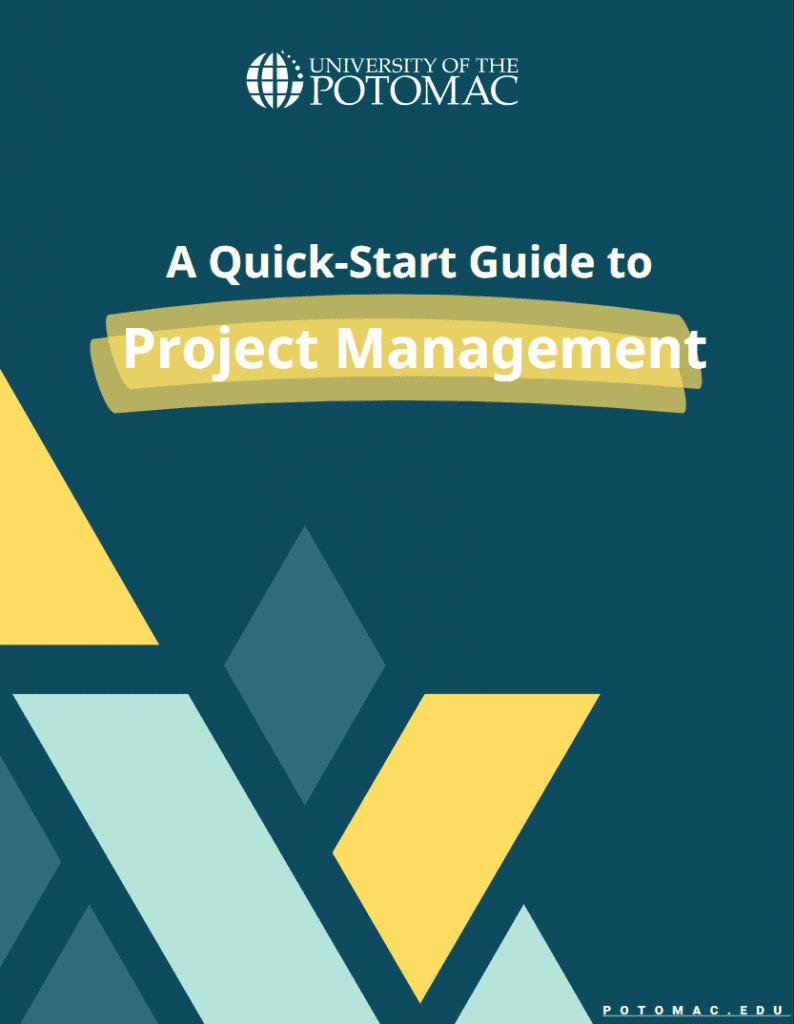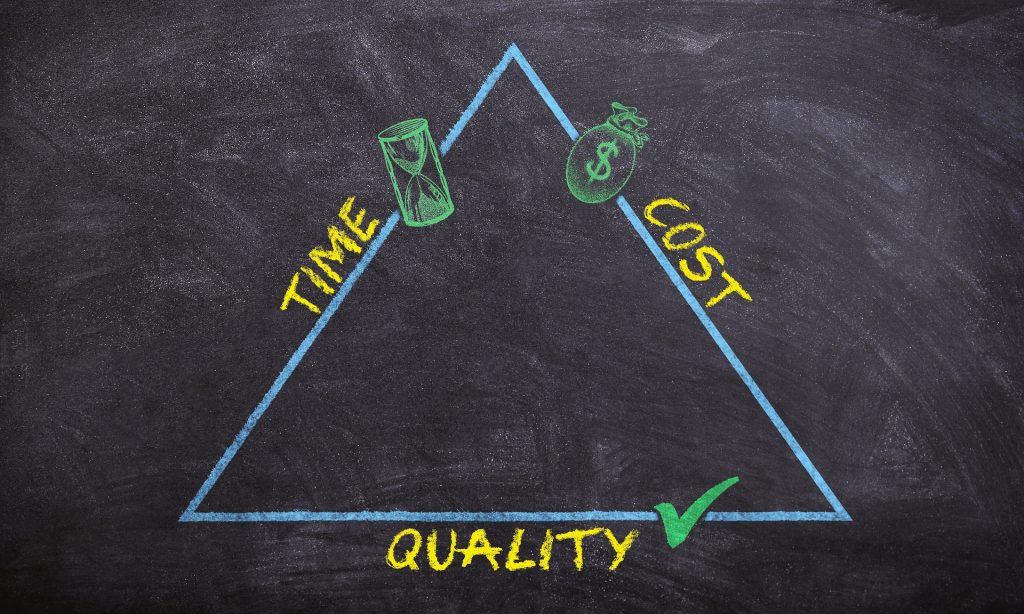Whatever career you choose for yourself, chances are there is a management position you can achieve as part of your career advancement. Though many of us like to think of management as kicking back and telling everyone else what to do—that is not quite the case. And that is certainly not the case in project management. A project manager (PM)’s duty is to ensure that the end product meets the set expectations and is delivered on time. Managing a project requires hard work, dedication, and skills.
Whether or not you are aiming for a management position, knowing how to manage a project can significantly impact your career. To master project management, start by learning all the different phases of project management and what goes into them:
What Is a Project Management Lifecycle?
While individual projects may differ in nature, there are certain aspects they all have in common. Each project has a timeline, a team, a budget, and a set of expectations to meet. In order to make the process of completing a project run smoothly, we can divide the project into different phases or tasks that the team needs to finish. When you divide the project into different stages, you can:
- Make the task more manageable
- Put more focus into each phase
- Better control the project and the quality of the product
After each phase, you can make an assessment and decide if you should make any changes and how to proceed with the project.
FREE RESOURCE

Download Our Free Quick-Start Guide to Project Management Now!
5 Phases of Project Management
According to the Project Management Institute (PMI), we can divide each project into five distinct phases or stages. Each project management phase serves a specific purpose and has its requirements. The completion of the tasks for each phase marks the completion of the phase itself. The different phases are in chronological and sequential order—the end of one phase marks the beginning of the next one until the end of the project.
Below you will find the five different phases of project management and the purpose of each one:
1. Project initiation
The very first phase of project management includes taking thoughts and ideas and turning them into actual goals. To broadly define the project, you must present the demand for said project and a project charter. The project charter must contain the following: the scope, objectives, and the participants in the project.
Since this is only the first phase of project management, you don’t need to go into thorough detail about what goes into the project, as you will do that in the planning phase.
2. Project planning
After you have set certain expectations and goals for the project, it is time for you to plan the whole thing. In the project planning phase, you carefully plan out each task that needs to be completed to meet the project goals. Because you plan the remaining phases of the project management in this phase, project planning will take considerable time. However, using more modern project management methodologies like Agile Project Management will reduce planning time.
In addition to planning tasks, you will need to identify technical requirements, develop a more precise project schedule, devise a communication plan, and establish goals and deliverables.
Two of the most common ways to set up goals for a project are S.M.A.R.T and C.L.E.A.R. The S.M.A.R.T (Specific, Measurable, Attainable, Relevant, and Time-bound) method includes setting clear and achievable goals and minimizing risks. On the other hand, the C.L.E.A.R (Collaborative, Limited, Emotional, Appreciable, Refineable) approach is designed to be used in dynamic environments.
3. Project execution
After you have a clear understanding of the project outline and the goals you need to achieve and have done the necessary planning, it is time to get to work. The project execution phase is where you put all your planning into action. The role and responsibilities of a project manager (PM) during the project execution entail establishing an efficient workflow among participants and monitoring the project’s progress.
Furthermore, a project manager must ensure consistent and productive cooperation between stakeholders. In doing so, a PM ensures that everyone involved is updated and in agreement, i.e., avoiding possible issues during the project. Project managers can use different project collaboration tools to increase the productivity and efficiency of the team members.
4. Project monitoring

Although logically, a fourth phase should come after a third phase, the project execution and monitoring phases are completed simultaneously. A project manager (PM) makes sure everyone follows through with the plans of the project through Critical Success Factors (CSF) and Key Performance Indicators (KPI) during project monitoring.
Interested in pursuing a degree?
Fill out the form and get all admission information you need regarding your chosen program.
This will only take a moment.
Message Received!
Thank you for reaching out to us. We will review your message and get right back to you within 24 hours.
If there is an urgent matter and you need to speak to someone immediately you can call at the following phone number:
- We value your privacy.
Another critical responsibility of a project manager during this phase is to follow the cost and effort of the whole process. Doing this is beneficial for future projects and can ensure the project stays within the planned budget.
5. Project closing



The project closing phase is the last one in project management. This is the phase that marks the end of the project after product delivery. During this phase, the project manager (PM) is responsible for closing the contracts and finishing the project paperwork. A common practice during this phase is a project team meeting for reflection. In this meeting, the team discusses everything that went down for the duration of the project, including successes and failures. These meetings are a way for the company to pinpoint what needs improvement and increase overall team productivity.
Lastly, a project manager has to evaluate the entire project and compile a detailed report by referring to the stored data throughout the project.
Tips to Simplify the Project Management Process
As you have probably come to know, successfully managing projects is not an easy task—it is, however, possible. There are even ways to simplify the whole process.
Technological advancement has significantly improved the project management process. For example, you can use cloud-based project management software for storing documents related to the project.
Secondly, by dividing the project into different phases, you can tackle and complete each one successfully and efficiently. Breaking the project into smaller stages will allow you to predict results or possible issues that might arise and avoid them.
Nowadays, the use of digital project management is not only an advantage but a necessity. Online project management software helps with planning, organizing, and tracking the project, thus simplifying the whole process.
Essential Project Management Skills
Project management requires a diverse set of skills to effectively lead teams, manage resources, and deliver successful outcomes. Here are some key skills that every project manager should cultivate:
Communication Skills – Effective communication is essential for conveying project goals, expectations, and updates to team members, stakeholders, and clients. Project managers must be proficient in both verbal and written communication to ensure clarity and alignment among all parties involved.
Leadership Skills – Project managers need strong leadership abilities to inspire and motivate team members, foster collaboration, and resolve conflicts. Effective leadership involves guiding the team towards common goals, providing direction and support, and leading by example.
Time Management – Managing time effectively is crucial for meeting project deadlines and milestones. Project managers should be skilled in prioritizing tasks, allocating resources efficiently, and implementing strategies to minimize delays and optimize productivity.
Organizational Skills – Successful project management requires strong organizational abilities to keep tasks, schedules, and resources well-coordinated and on track. Project managers must be adept at planning, multitasking, and maintaining attention to detail to ensure smooth project execution.
Problem-Solving Skills – Unforeseen challenges and obstacles are inevitable in any project. Project managers must be skilled problem solvers, capable of identifying issues, analyzing root causes, and implementing effective solutions to keep the project on course.
Risk Management – Anticipating and mitigating risks is a critical aspect of project management. Project managers should possess risk management skills to assess potential threats, develop contingency plans, and minimize the impact of adverse events on project outcomes.
Adaptability – Projects are dynamic environments that often require flexibility and adaptability to changing circumstances. Project managers should be agile and responsive, able to adjust plans and strategies as needed to accommodate evolving requirements and stakeholder needs.
Stakeholder Management – Building and maintaining positive relationships with stakeholders is essential for project success. Project managers should have strong interpersonal skills to engage with stakeholders, understand their interests and concerns, and address feedback and expectations effectively.
Financial Management – Understanding budgeting, cost estimation, and financial forecasting is crucial for managing project finances effectively. Project managers should have basic financial management skills to track expenses, control costs, and ensure projects stay within budget constraints.
Technical Proficiency – While not always required, having technical knowledge relevant to the project domain can be advantageous for project managers. Technical proficiency enables project managers to understand project requirements, evaluate technical solutions, and communicate effectively with technical team members.
The Bottom Line
Project management is a necessary skill for those who are seeking career advancement. Managing a project is not easy, but some tips can help you tackle it. Dividing the project into five different phases helps keep the project going smoothly and increases the quality of the product. Project managers can use online project management software to track project progress and make managing a project uncomplicated.
Frequently Asked Questions (FAQs):
What is the role of a project manager?
A project manager is responsible for overseeing the planning, execution, and completion of a project. They define project objectives, allocate resources, manage timelines, and communicate with stakeholders to ensure the successful delivery of project goals within budget and on schedule.
What is the difference between Agile and Waterfall project management methodologies?
The Waterfall methodology follows a linear approach to project management, with sequential phases such as initiation, planning, execution, monitoring, and closure. In contrast, Agile emphasizes iterative development, collaboration, and adaptability, allowing for flexibility and continuous improvement throughout the project lifecycle.
How do you manage project risks effectively?
Managing project risks involves identifying potential threats, assessing their impact and likelihood, developing mitigation strategies, and monitoring them throughout the project. Techniques such as risk registers, SWOT analysis, and Monte Carlo simulations can help project managers anticipate and address risks proactively.
What are some common challenges in project management?
Common challenges in project management include scope creep, resource constraints, communication breakdowns, stakeholder conflicts, and budget overruns. Effective project management techniques, such as regular communication, risk management, and stakeholder engagement, can help mitigate these challenges and ensure project success.










